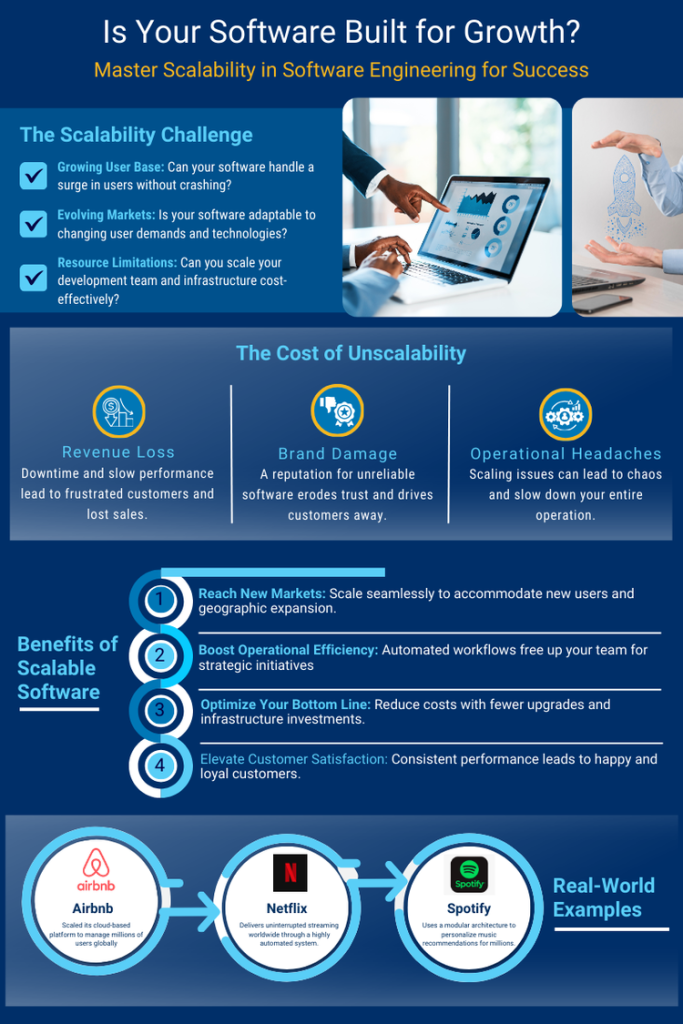- Application Services
- Next-Gen App Development
- Mobile Application Development
- Modernization
-
-
- Integration ServicesGet seamless integration of various 3rd party services or existing systems for smooth operations of your mobile apps
- Cross PlatformsExcellent user experience and functionality of native apps with multi-platform compatibility
- Legacy System Modernization ServicesLegacy system modernization empowers organizations so that they can work more efficiently and intelligently.
-
-
- DevOps
- Software Testing
-
-
- AI Enabled TestingLeverage AI for testing the quality of your software products
- Functional TestingAutomated Functional Testing for improved quality & faster go-to-market
- STQC CertificationQuality, Excellence, and Innovation – The Hallmarks of Suma Soft
- Performance TestingEliminate performance bottlenecks of business-critical apps to run under expected, peak loads
-
- Scriptless Automation SolutionsFast, reliable, and easy testing with our “Ready-to-Deploy” automation framework
- Devops TestingOptimize testing in CI/CD pipelines for greater agility, efficiency, and quality
- AA CertificationEmpaneled Certifier for Account Aggregator (AA) Ecosystem
- ABDM Ecosystem Sandbox Exit ProcessWe Certify Your API for ABDM Sandbox Integration And Exit Process
-
-
- AI/ML Services
- AI/ML ServicesStay ahead of the curve with our advanced AI/ML capabilities
- Data Engineering ServicesDrive data-driven decision-making with our agile and customizable data engineering solutions
- Software Product Engineering ServicesTransform your concepts into market-leading products with our strategic product engineering approach
- VaniePartner with Us for Innovative Web App Solutions!
- Indiastack
- Account AggregatorGet certified using Daksh DEPA Validator to go live on the AA network.
- Ayushman Bharat Digital Mission (ABDM)Get certified using Daksh DEPA Validator to go live on the ABDM network.
- Beckn Protocol ImplementationImplement Beckn protocol to go live on India Stack network.
- ONDC CertificationGet certified using Daksh DEPA Validator to go live on the ONDC network.
- O Rickshaw Pune’s First ONDC Mobility App
- Business Services
- Business Process Management
-
-
- Healthcare BPO ServicesRound the clock coverage for most critical industry
- Logistics BPO & Supply Chain ManagementSmarter supply chains Built for today and ready for tomorrow
- Data Entry ServicesEnsure the accuracy and security of your data with Suma Soft
- Underwriting support servicesStreamline underwriting processes , increase accuracy, reduce risk with expert support services.
- Finance and Accounting ManagementImproving Account Payable and Receivables Through Artificial Intelligence
-
- Logistics BPO ServiceOptimize logistics with efficient operations, reduced costs, and our improved visibility.
- Customer Support ServicesSmart use of technology makes all the difference in CX
- REIT Management ServicesProductivity for You. Transparency for Your Investor
- OCR Outsourcing ServicesAchieve faster, accurate and reliable data capture with OCR outsourcing solutions.
- Claims ManagementState-of-the-art technology to assist in responding to rapidly-evolving claim situations
-
-
- Tech Support
-
-
- Desktop SupportResponsive, Day-to-Day Tech Assistance
- Network SupportCreate a comprehensive network security strategy for protecting the enterprise end-to-end
- Active Directory SupportMinimize the risk of disrupting critical business apps while optimizing the performance of MS infrastructure
- Microsoft Exchange SupportStay on top of imminent threats to achieve a glitch-free network with rapid Microsoft Exchange support
-
- L1 & L2 SupportOptimize performance with round-the-clock technical support cater to your business goals
- Remote MonitoringKeep your IT systems running smoothly and ensure the stability and security of your IT environment for the workforce
- NOCGet unrivaled NOC services & scale immediately to enhance your bottom-line profitability with 24*7 services
-
-
- Hyperautomation
-
- Cyber Security
-
-
- AssessmentTest your applications and networks to identify & fix vulnerabilities exposing your sensitive assets
- Cloud SecurityIntelligence and expertise providing a new level of cyber-immunity
- Managed SecurityComprehensive security architecture with flexible enforcement for advanced protection
- Digital ForensicsEmpower your organization to access, manage and leverage Digital Data
-
-
- ServiceNow
- ServiceNow Managed ServicesOngoing ServiceNow support and optimization for peak performance.
- ServiceNow Integration ServicesOngoing ServiceNow Integration Services
- ServiceNow Implementation ServicesExpert ServiceNow implementation for customizable business solutions.
- ServiceNow Migration ServiceAchieve seamless platform transitions with smooth ServiceNow migration.
- ServiceNow Consulting ServicesStrategic ServiceNow consulting for optimal platform utilization.
- ServiceNow ITBM ImplementationImplement ITBM for strategic IT planning and execution.
- ServiceNow ITSM Implementation ServicesPlan and streamline IT service management with expert implementation services.
- ServiceNow Chatbot DevelopmentEnhance user experience with intelligent ServiceNow chatbot solutions.
- ServiceNow CSM ImplementationImprove customer service with efficient ServiceNow CSM implementation.
- ServiceNow GRC ImplementationManage governance, risk, and compliance with ServiceNow GRC.
- ServiceNow Security OperationsStrengthen security posture with ServiceNow security operations management.
- ServiceNow IT Operations Management ServicesOptimize Your IT Operations with automated workflows and efficient service delivery.
- ServiceNow HR Service DeliveryEnhance employee experiences with automated HR service management.
- ServiceNow Financial ManagementStreamline financial operations and improve decision-making with ServiceNow.
- ServiceNow Asset Management ServicesControl IT assets, reduce costs, and ensure compliance with ServiceNow Asset Management.
- Project Portfolio Management ServiceNowPrioritize projects and manage resources for successful delivery.
- Resource Management with ServiceNowStreamline resource allocation for project efficiency and success with ServiceNow Resource Management.
- Business Process Management
- Digital
- Cloud
-
-
- Cloud App Development ServicesGet high security, efficient performance, and excellent operations with cloud apps
- Cloud Testing ServicesDelivering highly polished solutions to help you reduce costs and meet deadlines
- Cloud Migration ServicesA secure cloud single sign-on solution that IT, security, and users will surely love
-
- Enterprise Mobility
- CRM
- Microsoft Dynamics 365 ServicesStreamline business processes with superior BI, automation, and key customer insights
- Custom CRM Development ServicesDigitize processes, enhance everyday managerial activities and engage more customers
- Salesforce Consulting ServicesTransform Your Business with Expert Salesforce Guidance – Elevate Performance and Drive Growth!
- Salesforce testing servicesAchieve end-to-end automation for Salesforce testing
- E-Learning
- Collaboration
- Dusmile Platform
- Cloud
- Insights
- Industries
- Industry We Serve
- Banking And FinanceAccelerate your journey with fintech innovation to reshape customer experience
- GovernmentFully-managed environment for Government, Built for security and compliance
- E-CommerceBest-of-breed technologies to enhance CX and increase revenue to maximize business needs
- E-LearningReimaging education – from remote to hybrid learning
- Logistics & DistributionChanging the landscape of supply chain management
- AutomotiveRevolutionizing automotive development for the digital future
- HealthcareDelivering better experiences, better insights, and better care for better health
- ManufacturingLeverage our deep expertise to modernize your manufacturing and industrial technologies and processes.
- Industry We Serve
- About Us
- About Suma Soft
- HistoryDecades of experience and expertise matched with dedicated professionals.
- LeadershipA leadership that drives Suma Soft to meet its overall goals.
- CertificationsOur recognition as a trusted technology company for orchestrating a successful business transformation
- Our PartnersBringing together the best technologies and practices to offer a prosperous digital future
- Annual ReturnSuma Soft’s Yearly Financial Annual Return Report
- About Suma Soft
- Careers
- Contact Us
Scalability has become a vital aspect of software engineering in today’s digital era. With customers’ expectations soaring high and even a minor delay leading to customer loss, businesses require software that can rapidly adapt to accommodate a growing user base while ensuring optimal performance and user experience. This is where software product engineering comes into play. It serves as an architect for your software infrastructure, ensuring that it is future-proof and can meet your business’s ever-changing demands related to scalability in software engineering
The Scalability Challenge for Businesses:
Increasing User Base:
To ensure the smooth functioning of your software and prevent any possible service disruptions, consider implementing scalable software solutions as your user base grows. This will help manage the increased traffic and maintain optimal performance without frustrating lag times or service outages.
Evolving Market Demands:
Product development requires awareness of the ever-evolving digital landscape. To stay up-to-date, software products need to be able to change and work well with new technology and what users want.
Resource Limitations:
Achieving scalability in software engineering demands substantial hardware, software, and human resources investments. Balancing cost-effectiveness with scalability can be challenging for startups and small businesses, requiring a delicate approach.
The consequences of failing this agility test are severe:
Revenue Losses:
Scalability is essential in software engineering, as downtime and slow performance can negatively impact business operations. This can lead to frustrated customers, missed opportunities, and lower profits.
Brand Damage:
A reputation for unreliable software can quickly spread, eroding trust and driving customers away.
Operational Headaches:
Implementing scalable software solutions in software engineering can prevent internal chaos due to scalability issues. This helps teams avoid urgently addressing leaks and bottlenecks that can impede the scaling process.
Regarding product development, planning for scalability is crucial rather than reacting when issues arise. By doing so, you are taking a proactive approach to safeguard your product against potential threats. This is the key to quickly navigating the digital landscape and avoiding the pitfalls of needing to prepare.
Architecture & Design: The Foundation of Scalability
The core of scalability in software engineering lies in the blueprint – your software’s architecture and design. Here’s how product engineering paves the way:
Exemplary Architecture:
Creating scalable software solutions is crucial for modern product engineering. Rather than having a single, large structure, product engineers are inclined towards utilizing microservices or cloud-native architectures. This method breaks down the functions into separate, loosely connected components. This modular design allows for scaling individual parts without impacting the entire system, such as adding more servers to handle an increased database load.
Accelerated Time-to-Market:
By automating repetitive tasks and streamlining processes, DevOps slashes lead times, allowing your team to roll out new features at the speed of innovation.
Modularity Matters:
In product development, modular design is a crucial advantage, enabling building software from smaller, self-contained units. This approach makes it easier to scale specific functionalities without affecting others, which is essential for adapting to changing needs.
Technology & Tools: Gearing Up for Growth
To ensure the seamless expansion of your operations, it is crucial to have access to the right tools and technologies.
Harnessing Cutting-Edge Tech:
Product engineers use containerization technologies like Docker to package and deploy applications in isolated environments, enabling seamless scaling across different platforms.
API Integrations:
APIs can be a valuable asset in product development as they provide an opportunity to incorporate external resources and services. This allows businesses to utilize external capabilities for specific functions, which can help avoid the need to build everything from scratch in-house and streamline the overall product development process.
Automation is Key:
Implementing scalable software solutions that automate tasks like infrastructure provisioning and code deployment can significantly reduce the occurrence of human error and allow for faster adjustments to accommodate changes in scalability requirements.
CI/CD for Agility:
DevOps methodologies have evolved to incorporate modern practices such as continuous integration and continuous delivery (CI/CD) that automate the process of building, testing, and deploying code. This rapid feedback loop enables faster rollouts of scaling changes and minimizes downtime.
Development Processes:
Agile for Adaptation:
Product engineering embraces agile methodologies like Scrum or Kanban. These prioritize frequent iterations and user feedback, allowing you to adapt to changing requirements and build scaleable features.
Test-Driven Development:
Building software with scalability in mind starts with robust testing. Engineers employ test-driven development (TDD) to write tests before code, ensuring functionality and performance under increased load.
Performance Optimization:
Techniques like code profiling and resource monitoring identify and address potential bottlenecks before they impact scalability. This proactive approach ensures your software remains performant even as it grows.
Investing in software product engineering can foster a culture of scalability within your organization. This means you develop software with built-in flexibility, resilience, and growth potential. As a result, you can reduce costs, speed up your time-to-market, and take advantage of opportunities as they arise.
By implementing software engineering practices that prioritize scalability, you can unlock tremendous potential for your business. Let’s delve deeper into how this can be achieved.
Quantifiable Benefits for Business:

Reach new market heights:
The scalability of software engineering enables seamless addition of new users and facilitates expansion to new geographical locations, all while maintaining optimal performance and cost-effectiveness. By leveraging a sturdy software foundation, businesses can venture into new markets and territories without any concerns about managing a sudden influx of traffic.
Boost operational efficiency:
Implementing automated architecture can simplify workflows and minimize resource utilization, enabling your team to concentrate on crucial strategic initiatives. At the same time, the software handles routine tasks, driving productivity and cost optimization to new heights.
Optimize your bottom line:
Scalable solutions are cost-effective as they require fewer upgrades and infrastructure investments, saving you money in the long run. It’s important to future-proof your software for growth and avoid costly rework, which can lead to financial stability and a healthier balance sheet.
Elevate customer satisfaction:
Users won’t experience crashes or frustration when your software scales correctly. Instead, they’ll enjoy a consistently smooth and delightful experience, boosting brand loyalty and advocacy. Imagine the positive reviews and soaring NPS scores fueling faster growth.
Real-World Examples of Scalability Success:
Airbnb:
Airbnb’s successful management of millions of daily bookings and user interactions, along with its global expansion, can be attributed to its adoption of a cloud-based infrastructure and microservices architecture, enabling the platform to scale seamlessly and maintain high levels of scalability in software engineering. By embracing a microservices architecture and cloud-based infrastructure, Airbnb flawlessly manages millions of bookings and user interactions daily and scales to accommodate global expansion.Netflix:
Netflix’s content delivery network exemplifies the power of scalable content distribution in software engineering, as it allows for uninterrupted streaming on a global scale through a highly automated system.Spotify:
Spotify leverages a modular architecture and data-driven insights to enable scalability in software engineering. As a result, it can effortlessly personalize music recommendations and provide dynamic user experiences to a vast audience of millions of listeners worldwide.Achieving Scalability in Software Engineering with Our Professional Expertise:
We recognize that scalability in software engineering is a complex solution. Every organization encounters distinct obstacles, and Suma Soft provides a complete range of services customized to conquer these challenges.
Cloud Migration:
Leverage the agility and scalability of cloud platforms like AWS, Azure, or GCP.Microservices Architecture Consulting:
Break down your monolith into independent, easily scalable services.CI/CD Implementation:
Automate your product development and deployment pipelines for faster and more reliable updates.Continuous improvement:
We prioritize scalable software solutions for our clients. To achieve this, we rely on automated testing and DevOps practices, which help us build adaptable and resilient software for the future.Software product engineering isn’t just about adding features; it’s about building a foundation for sustainable growth. Investing in scalable software solutions unlocks your business’s potential, empowering you to adapt to new opportunities and outpace your competition.
Ready to transform your software into a growth engine? Contact Suma Soft today for a free consultation and discover how we can assist you in constructing for the future with scalability in software engineering.
Technical Manager – AI/ML Service | Smartchat and Voice Bot development |
Specialize in Fianace | Call centre Automation Project “Vanie – 100% Call Audit Solution
Recent Posts
- DevOps in Software Product Engineering: Streamlining Development and Operations September 10, 2024
- Accelerate Your Business with Our Data Engineering Solutions: A Case Study August 20, 2024
- The Role of Cloud Computing in Modern Data Engineering Solutions June 25, 2024
- Why 70% of Enterprises Are Choosing Hybrid Apps and How They Benefit May 24, 2024
- How Building a Native App Can Increase Customer Engagement by 3X May 20, 2024
- What Competitive Advantages Do PWAs Offer Over Traditional Mobile Apps? May 16, 2024
- 5 Must-Have Features for Enterprise-Level iOS Apps May 14, 2024
- 5 Ways to Supercharge Your Android App with AI and Machine Learning May 8, 2024
- Comparing Traditional ETL vs. Modern Data Engineering Approaches April 24, 2024
- Can Outsourcing E-Commerce Customer Service Actually Drive Sales and Brand Loyalty? April 10, 2024

